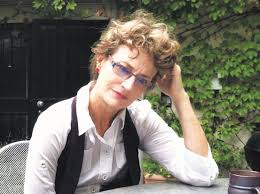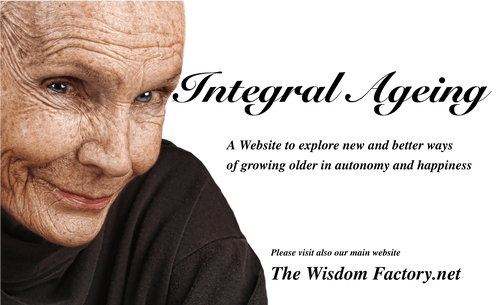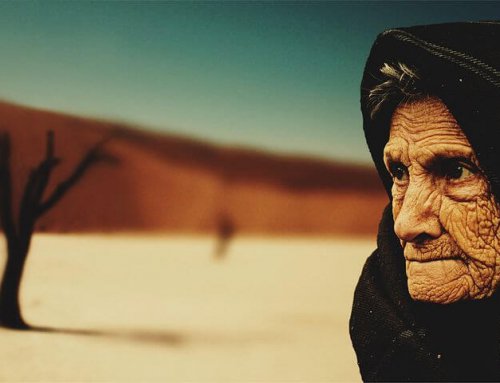We’re already a few months into this Ageism/Ageist/Ageing project!
And what do those terms mean?
We’ve never yet really defined how we use them – not and not in our pages in Facebook or Google+.
And they need some definition, judging by the looks we get when we mention them in conversation.
And also partly because “agist” is an old term that means to feed and house someone else’s livestock for money, as in (thanks to the Oxford Living Dictionary): “The dairy farmer might wish to agist lambs after the cows are housed for the winter.”
And one more reason: We prefer Ageism, Ageist and Ageing because those are the “proper” spellings in the U.K and that’s what English speakers in Europe and elsewhere would expect.
Yes, Heidi and I live in Italy and we know that old England still rules the English language here.
…let’s move on to what the words actually mean.
Ashton Applewhite has been involved in this Age business for some time now and has narrowed these concepts down to a manageable size. In her blog at: thischairrocks.com she says Ageism is…
“…stereotyping and discrimination on the basis of a person’s age. We experience it any time someone assumes that we’re “too old” for something—a task, a haircut, a relationship—instead of finding out who we are and what we’re capable of. Or “too young;” ageism cuts both ways, although in a youth-obsessed society olders bear the brunt of it.”
She continues with some of the consequences of ageism…
“Stereotyping—the assumption that all members of a group are the same—underlies ageism (as it does all “isms”). Stereotyping is always a mistake, but especially when it comes to age, because…the older we get, the more different from one another we become.”

Our right feisty Ashton Applewhite
“Attitudes about age—as well as race and gender—start to form in early childhood. Over a lifetime they harden into a set of truths: “just the way it is.” Unless we challenge ageist stereotypes—Old people are incompetent. Wrinkles are ugly. It’s sad to be old—we feel shame and embarrassment instead of taking pride in the accomplishment of aging. That’s internalized ageism.
“By blinding us to the benefits of aging and heightening our fears, ageism makes growing older far harder than it has to be. It damages our sense of self, segregates us, diminishes our prospects, and actually shortens lives.”
We could add more details but there you have it. From the above, we can say that an “ageist” is someone who consciously or unconsciously thinks, speaks or acts according to those stereotypes. We must include ourselves here as we too have undoubtedly absorbed cultural norms about what getting older or what “acting our age” means.
Finally, the very term “ageing” is simply the process of living one day longer every 24 hours – and it begins at birth!
Of course in some contexts these terms can mean something more specific – which is fine as long as everyone understands those contexts. But would one ordinarily see the transition from child into adolescent as “ageing”? Some slopes are slipperier than others!
P.S:
Did you note above that Ashton wrote “aging” without that precious “e” but no matter how you spell it, it’s what you mean by it that counts.
PPS:
Here a list of words associated with Ageism from Thesaurus.com (http://www.thesaurus.com/browse/ageism):
animosity, antipathy, apartheid, aversion, bad opinion, bias, bigotry, chauvinism. comtemtuousness, detriment, discrimination, disgust, dislike, displeasure, disrelish, enmity, forgone conclusion, illiberality, injustice, jaundiced eye, mindset, misjudgement, narrow-mindedness, one-sidedness, partiality, pique, preconceived notion, preconception, prejudgement, prepossession, racism, repugnance, revulsion, sexism, slant, spleen, tilt, twist, umbrage, unfairness, warp, xenophobia
Mark, November, 2016





Thanks for cleaning up the play house Mark! Now to the play!!!
Thanks for noticing, Tom! It’s nice to get a response. Tune in on Friday (noon in Wis,)for Act 1 of the play (also viewable anytime afterward on YouTube)
-Mark
Thanks Mark for sharing this interesting article.
The process of aging is best described in Shakespeare’s Seven Stages of Life which interestingly are mentioned in Quran also with only the difference that in Shakespeare’s Seven Stages the life ends at the Seventh Stage. But in Quran it returns to the first stage.
The most interesting aspect to notice is that in our culture the parents look after their Children since their birth to their ability to take care of themselves. And once the parents are old they are looked after by their children as the parents did while their children were dependent on them.
From this perspective the first meaning of the word aging makes sense in our part of the world where the concept of “Old Home” is not that popular as it is in the West.
Thanks, Zahid, for your (as always) thoughtful response.
And the Quran’s version of the Seven Stages of Life is not far from the Buddhist notion expressed in the “Ox-Herding Pictures” where the searcher begins in the market place and after the journey of life returns again to it. Pastoral religions always have these cyclic stories. It’s only with western “Modernity” in the 1600’s that we began to see ever upward linear stories. I see the “Old Home” as just one step on that journey. After Modernity passes I expect to see more cyclic stories again.